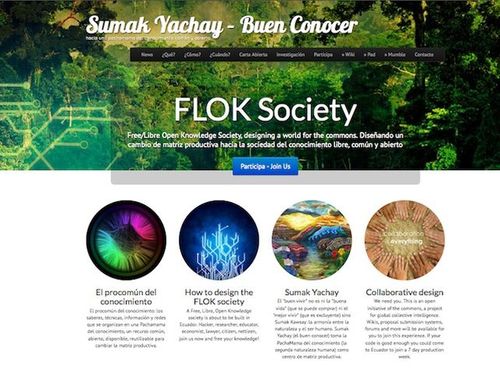Future Now
The IFTF Blog
Leapfrog Democracies @ Personal Democracy Forum
UPDATE: We've added a video of David Evan Harris' talk on Leapfrog Democracies at the Personal Democracy Forum 2014 below.
I’m happy to report that I’ll be giving my second public talk about the concept of “leapfrog democracies” at the Personal Democracy Forum in New York on June 5. It’s a subject I’ve been exploring for the past 18 months and I’m excited to be dedicating more time to researching it this year. Institute for the Future's Governance Futures Lab will also be leading a workshop on “Governance Design for the Future.”
ADDED: Here’s a video of the leapfrog talk…
And here’s a description of that talk …
Leapfrog Democracies: From Tunis to Tallinn, and Quito too
Sometimes, innovation shows up where you least expect it. Over the past decade, numerous “developing” nations curtailed investment in their incomplete landline phone networks and moved directly to implement sophisticated mobile phone networks. In many cases, these new networks were more advanced than those of the world’s most “developed” nations. This is just one example of the phenomenon of technological “leapfrogging,” which has important implications as we consider innovations in democracy and governance.
Image: Ecuador’s FLOK Society (Free/Libre Open Knowledge)
Could the world’s newest democracies “leapfrog” their older cousins, implementing new technologies and practices of governance that transform the field of governance globally? At the Institute for the Future’s Governance Futures Lab, we are finding an increasing number of signals indicating that some of the most pathbreaking innovations in democracy over the coming decades may come from nations that are unencumbered by their own legacy systems of democracy.
Tunisia, leading the pack of post-revolutionary Arab Spring democracies, has been heralded as having a new, more progressive constitution than the United States, enshrining access to health care, women’s and workers’ rights, and protecting against climate change. Estonia has set world records as as the pioneer in online voting, and is now dubbed “e-Stonia” for their particularly impressive technical prowess. Ecuador is not as “young” a democracy as Estonia or Tunisia, but in taking a backwards-and-forwards, longue-durée view on the topic, their new Free/Libre Open Knowledge (FLOK) Society seems to fall cleanly into the leapfrog category. This presidentially-endorsed initiative seeks to replace the proprietary armaments of “cognitive capitalism” with open knowledge for all, and its ambitious agenda spans everything from mining to agriculture to education.
Whether it’s a case of beginner’s luck or beginner’s mind, these are only a few of the growing list of signals that the cutting edge of 21st century technologies and practices of democracy may not come from your Washington, Geneva, Brussels or even Silicon Valley. It might be time to put Tallinn, Tunis and Quito on your watch list.
 IFTF's Governance Futures Lab brings social inventors and futures thinking to the challenge of designing better systems of governance. Through a range of public activities and initiatives, our goal is to facilitate the definition and invention of new governance systems appropriate for an age of planetary challenges and human responsibility.
IFTF's Governance Futures Lab brings social inventors and futures thinking to the challenge of designing better systems of governance. Through a range of public activities and initiatives, our goal is to facilitate the definition and invention of new governance systems appropriate for an age of planetary challenges and human responsibility.
Want to find out more?
- Learn more about the Governance Futures Lab
- Follow the conversation @iftf
- Contact Sean Ness (sness@iftf.org or 650-233-9517)




